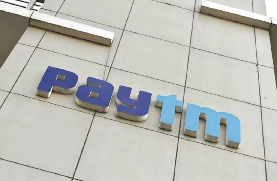In a significant development for digital payments in India, the National Payments Corporation of India (NPCI) has officially approved Paytm to onboard new Unified Payments Interface (UPI) users. The company takes a breath of relief. This decision comes nearly nine months after the Reserve Bank of India (RBI) imposed a ban on the addition of new customers. The approval is expected to facilitate Paytm’s growth in the digital payments sector.
This approval comes with the stipulation that Paytm must adhere to all procedural guidelines and circulars set forth by the NPCI. As digital transactions continue to rise across the country, this move is seen as a vital step towards enhancing financial inclusion. This would also boost promoting cashless transactions among the masses.
One97 Communications Ltd. (OCL), the parent company of Paytm, announced this on Tuesday.
Paytm, one of India’s leading fintech companies, expressed its commitment to comply with all regulatory requirements as it expands its user base on the UPI platform. The approval is expected to bolster Paytm’s position in the competitive digital payments landscape, allowing for greater accessibility and convenience for its users.
“We would like to inform you that vide letter dated October 22, 2024, the National Payments Corporation of India (NPCI) has granted approval to the Company to on-board new UPI users, with adherence to all NPCI procedural guidelines and circulars,” Paytm said in an exchange filing late Tuesday.
In March, Paytm received approval to operate as a third-party application provider (TPAP) on the Unified Payments Interface (UPI). As part of this arrangement, four major banks—State Bank of India (SBI), Axis Bank, HDFC Bank, and YES Bank— are payment service providers (PSPs) for Paytm. This partnership aims to enhance Paytm’s capabilities in the digital payments landscape, facilitating smoother transactions for its users.
Paytm’s Past With RBI
RBI Barred Paytm Payments Bank from Accepting New Deposits Due to Compliance Issues. RBI in past prohibited Paytm Payments Bank Ltd (PPBL) from accepting new deposits starting February 29, citing “persistent non-compliances” with regulatory requirements. This decision highlights concerns regarding the bank’s adherence to necessary guidelines.
The RBI’s action aimed to ensure that PPBL aligns with the required standards, impacting its ability to attract new funds from customers. The bank was expected to address these compliance issues to regain operational normalcy in the future.
This ban has dealt a blow to the fintech giant, leading to a decline in its share prices and overall performance metrics. Its market share in UPI has dropped from 13 percent in January to approximately 7 percent in September, following the restrictions on adding new users. However, it continues to be the third largest player in the UPI ecosystem.



